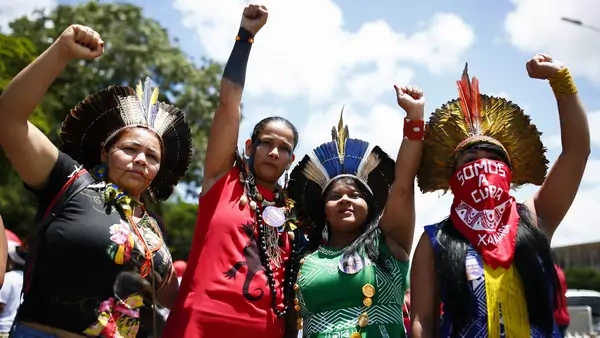Renewing the Global Architecture for Gender Equality

UN Women has the potential to make serious progress on gender equality and equity—but the U.S. government needs to help make this a reality.
March 10, 2022

- Report
Decades of effort from national governments and international institutions have fallen short in achieving gender equality. With the Sustainable Development Goals deadline fast approaching, the time has come to accelerate progress by putting meaningful resources and political support behind the international architecture dedicated to advancing gender equality—starting with UN Women and the Generation Equality Forum.
There has been a growing awareness of the pervasive barriers women and girls face, as well as the societal, economic, and security benefits that flow from increasing gender equality. Yet most women and girls remain significantly underrepresented in the global workforce and in public and political life, particularly at senior levels. They also suffer disproportionate rates of violence and poverty, poor health and education outcomes, and lack of access to rights and justice. The COVID-19 pandemic and its associated global economic downturn have exacerbated those problems.
Establishing new institutions will not solve the problems and instead risks compounding them. The existing architecture and ambitious initiatives, including the Generation Equality Forum, can deliver results. To make that happen, countries such as the United States need to lead by example, unequivocally embracing gender equality as a priority, supporting existing institutions explicitly designed to address disparities, and putting substantial resources behind meaningful policy and legal changes. Within that context, reforms and additions to the international architecture should be additive instead of duplicative.
More on:
This Discussion Paper is based on research funded by the Bill & Melinda Gates Foundation. The findings and conclusions contained within are those of the authors and do not necessarily reflect positions or policies of the Bill & Melinda Gates Foundation.
More on:
 Online Store
Online Store